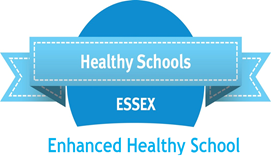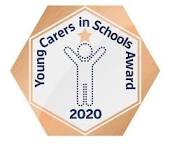Young Carers
A young carer is someone under the age of 18 who provides regular care and support to a family member or friend who is ill, disabled, or affected by mental health issues or substance misuse. This might include helping with physical tasks, emotional support, or managing daily routines. For many young carers, balancing their responsibilities at home with their education can be challenging. It’s important to recognise and support them within the school environment.
Challenges Faced by Young Carers: Young carers often face several difficulties in balancing school with their caregiving duties, including:
- Time Management: Caring responsibilities can take up a significant amount of time, leaving little for homework, revision, or extracurricular activities.
- Emotional Stress: Caring for a loved one, especially someone with a serious illness or mental health issues, can be emotionally draining. Young carers might feel anxious, worried, or overwhelmed.
- Physical Strain: Some caregiving roles require physical tasks, such as helping someone move or managing household chores, which can be tiring and affect the young carer’s own health.
- Isolation: Young carers may feel isolated or embarrassed about their situation and could struggle to socialize with friends.
- Academic Struggles: Due to the time and emotional strain, young carers may experience difficulties keeping up with their learning, leading to poor academic performance or low school attendance or lateness.
How Holy Cross Supports Young Carers:
- Identification and Awareness:
- Encourage an environment where young carers feel safe to identify themselves. It’s essential for teachers, and other school staff to understand the needs of young carers and to be able to recognize signs that a student might be in this situation. All staff have undertaken an online Young Carers course.
- School can provide information to all children about young carers and the challenges they face. Mrs Gallagher regularly attends networking meetings to keep up to date with current practices.
- Flexible Support:
- Allow for flexibility in deadlines and attendance policies where appropriate. This may mean giving students extra time to complete homework or offering alternative ways to demonstrate learning.
- Ensure that caregivers aren’t penalised for missing school due to their caregiving responsibilities.
- Emotional Support:
- Provide access to support services where young carers can talk openly about their experiences and receive emotional support.
- Encourage teachers to maintain open lines of communication and create a space for students to express their needs and challenges.
- Peer Support:
- We promote peer support networks and a Young Carers Club every week, so young carers can connect with others who understand their experiences. This can help reduce feelings of isolation.
- At Holy Cross we run a Young Carers Clubs and activities that raise awareness and reduce the stigma around being a young carer, including a yearly assembly delivered by Young Carers and an online courses for all staff.
- Practical Support:
- Adjust the learning environment to suit the needs of young carers, such as offering quiet learning spaces or extra tutoring if needed.
- Provide information on external resources or services that can help young carers manage their responsibilities at home, such as respite care or local community programs.
- Involve Families:
- With the young carer’s consent, we communicate with their family about the challenges they face in school and explore how both home and school can work together to support the young carer.
Why It Matters: Supporting young carers in school isn’t just about academic success—it’s about their overall well-being. With the right support, young carers can thrive academically, socially, and emotionally, while continuing to fulfil their caregiving responsibilities. By raising awareness, offering flexible learning options, and providing emotional and practical support, schools can help young carers feel understood, valued, and empowered.
Young carers are unsung heroes, but they also need support. Our school plays a vital role in helping the children balance their caregiving responsibilities with their education, ensuring they do not fall behind academically and are provided with the emotional and practical support they need. By fostering an inclusive and supportive school environment, we can help young carers feel more confident, supported, and ready to succeed in both their caregiving roles and their educational journey.











